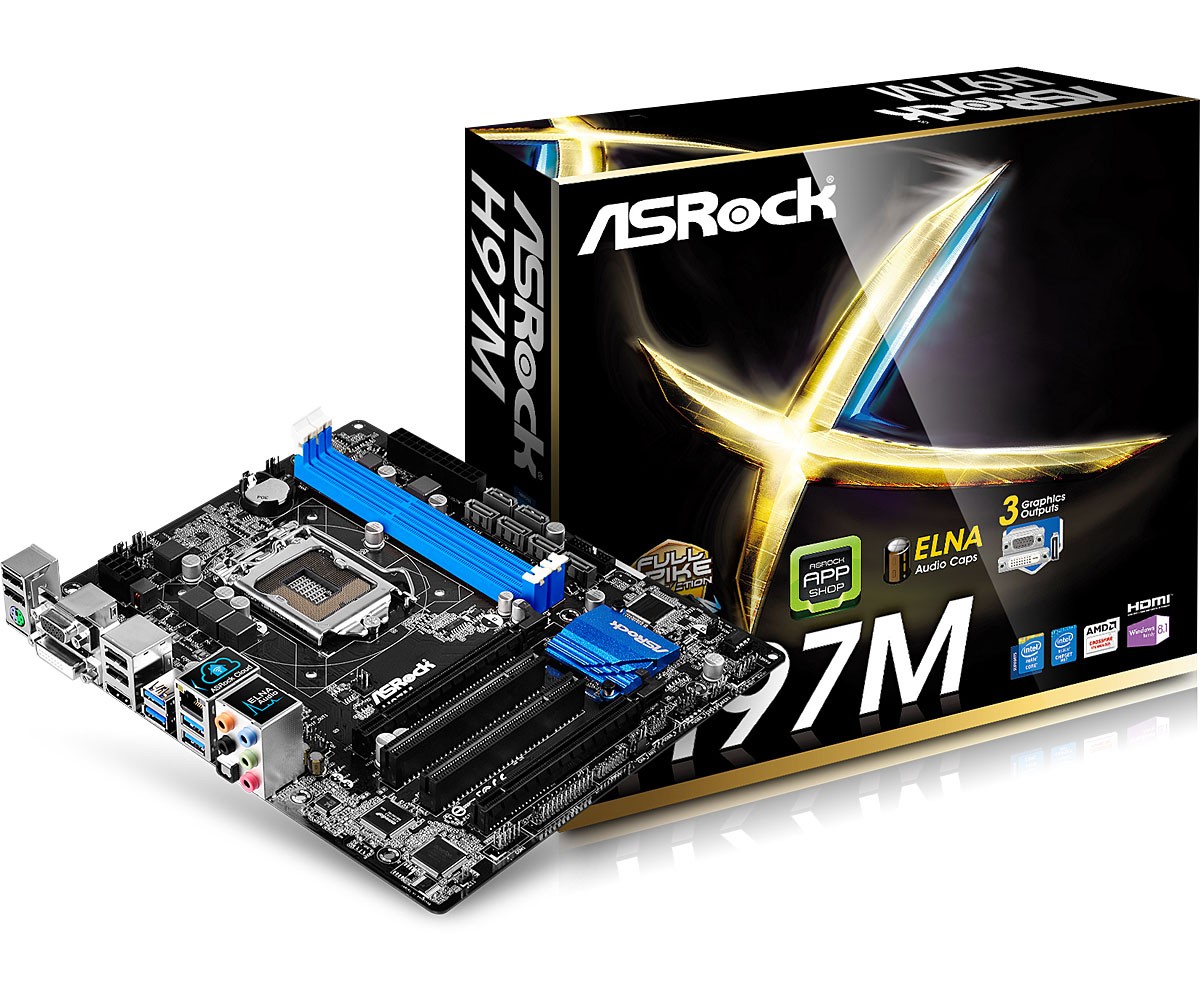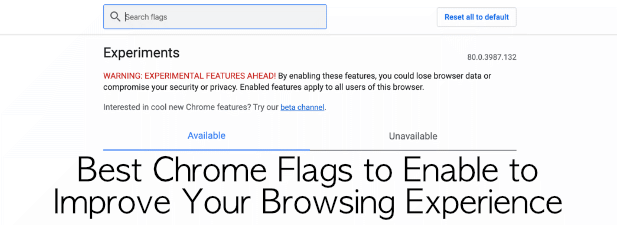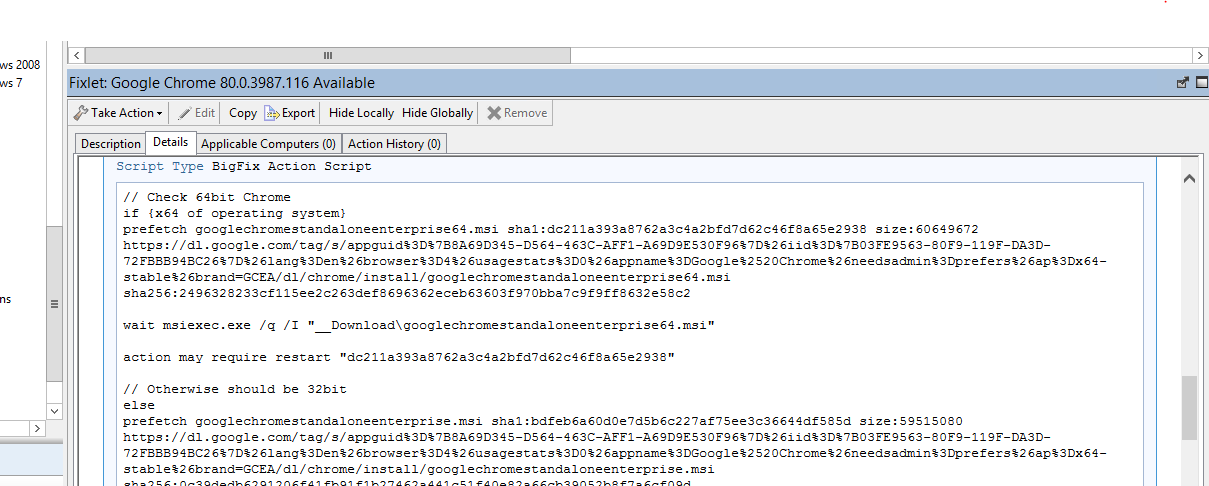If you're having problems downloading Chrome on your Windows computer, you can try the alternate link below to download Chrome on a different computer. On a computer connected to the Internet, download the alternate Chrome installer.; Move the file to the computer where you want to install Chrome. This package always installs the latest version of Google Chrome Beta, regardless of the version specified in the package. Google does not officially offer older versions of Chrome for download. Because of this you may get checksum mismatch between the time Google releases a new installer, and the package is automatically updated. To start, download the appropriate Chrome Browser for enterprise bundle (64 or 32 bit). Download: Bundle 64 bit Bundle 32 bit What’s in the bundle? The bundle has all the files you need to configure, update, and deploy Chrome Browser to your Windows network. You also get files to help with other operating systems and devices. WebDriver for Chrome. All code is currently in the open source Chromium project. This project is developed by members of the Chromium and WebDriver teams. Try new features with Chrome Beta. Feeling adventurous? Preview upcoming features before they’re released. Download Chrome Beta.
Support for let and class redeclarations in the Console #
The Console now supports redeclarations of let and class statements. The inability to redeclare was a common annoyance for web developers who use the Console to experiment with new JavaScript code.
Redeclaring a let or class statement in a script outside of the Console or within a single Console input will still cause a SyntaxError.
For example, previously, when redeclaring a local variable with let, the Console would throw an error:
Now, the Console allows the redeclaration:
Chromium issue #1004193
Improved WebAssembly debugging #
DevTools has started to support the DWARF Debugging Standard, which means increased support for stepping over code, setting breakpoints, and resolving stack traces in your source languages within DevTools. Check out Improved WebAssembly debugging in Chrome DevTools for the full story.
Network panel updates #

Request Initiator Chains in the Initiator tab #
You can now view the initiators and dependencies of a network request as a nested list. This can help you understand why a resource was requested, or what network activity a certain resource (such as a script) caused.
After logging network activity in the Network panel, click a resource and then go to the Initiator tab to view its Request Initiator Chain:
- The inspected resource is bold. In the screenshot above,
https://web.dev/default-627898b5.jsis the inspected resource. - The resources above the inspected resource are the initiators. In the screenshot above,
https://web.dev/bootstrap.jsis the initiator ofhttps://web.dev/default-627898b5.js. In other words,https://web.dev/bootstrap.jscaused the network request forhttps://web.dev/default-627898b5.js. - The resources below the inspected resource are the dependencies. In the screenshot above,
https://web.dev/chunk-f34f99f7.jsis a dependency ofhttps://web.dev/default-627898b5.js. In other words,https://web.dev/default-627898b5.jscaused the network request forhttps://web.dev/chunk-f34f99f7.js.
Initiator and dependency information can also be accessed by holding Shift and then hovering over network resources. See View initiators and dependencies.

Chromium issue #842488
Highlight the selected network request in the Overview #
Chrome 80 Download Mac
After you click a network resource in order to inspect it, the Network panel now puts a blue border around that resource in the Overview. This can help you detect if the network request is happening earlier or later than expected.
Chromium issue #988253
URL and path columns in the Network panel #
Use the new Path and URL columns in the Network panel to see the absolute path or full URL of each network resource.
Right-click the Waterfall table header and select Path or URL to show the new columns.
Chromium issue #993366
Updated User-Agent strings #
Chrome 80 Download
DevTools supports setting a custom User-Agent string through the Network Conditions tab. The User-Agent string affects the User-Agent HTTP header attached to network resources, and also the value of navigator.userAgent.
The predefined User-Agent strings have been updated to reflect modern browser versions.
To access Network Conditions, open the Command Menu and run the Show Network Conditions command.
You can also set User-Agent strings in Device Mode.
Chromium issue #1029031
Audits panel updates #
Google Chrome 80
New configuration UI #
The configuration UI has a new, responsive design, and the throttling configuration options have been simplified. See Audits Panel Throttling for more information on the throttling UI changes.
Coverage tab updates #
Per-function or per-block coverage modes #

The Coverage tab has a new dropdown menu that lets you specify whether code coverage data should be collected per function or per block. Per block coverage is more detailed but also far more expensive to collect. DevTools uses per function coverage by default now.
You may see large code coverage differences in HTML files depending on whether you use per function or per block mode. When using per function mode, inline scripts in HTML files are treated as functions. If the script executes at all then DevTools will mark the entire script as used code. Only if the script doesn't execute at all will DevTools mark the script as unused code.
Coverage must now be initiated by a page reload #
Toggling code coverage without a page reload has been removed because the coverage data was unreliable. For example, a function can be reported as unused if its execution was a long time ago and V8's garbage collector has cleaned it up.

Chromium issue #1004203
Last updated: •Improve article

ChromeDriver
|
